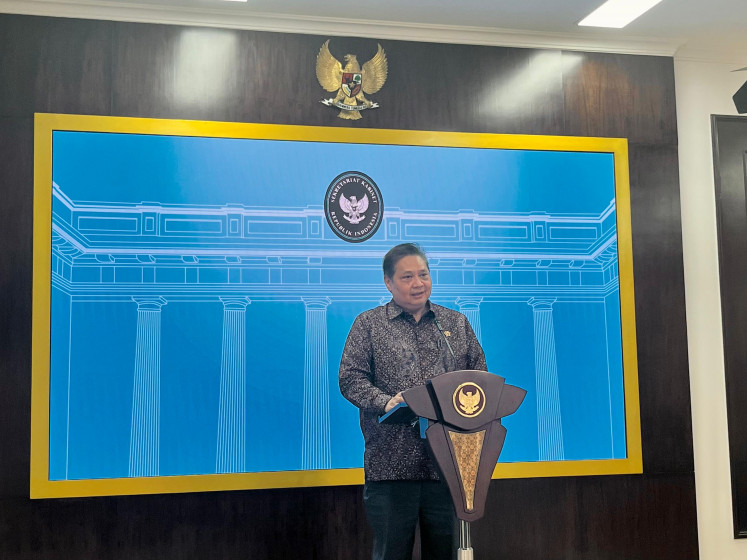Foreign groups wary of 'Ormas' law
The newly endorsed Mass Organization (Ormas) Law is putting foreign NGOs operating in Indonesia in a difficult position, as they must choose between siding with their local partners or abiding by the governmentâs new policies
Change text size
Gift Premium Articles
to Anyone

T
he newly endorsed Mass Organization (Ormas) Law is putting foreign NGOs operating in Indonesia in a difficult position, as they must choose between siding with their local partners or abiding by the government's new policies.
A number of foreign NGOs interviewed by The Jakarta Post said that they did not mind abiding by the new law, but admitted that it would likely restrict their partnerships with local NGOs.
'The law will put us in a difficult situation with our local partners because we do support their struggle for freedom of association, but we must also obey the Indonesian government because we signed an agreement before entering the country,' one of the groups said, who declined to be identified due to the sensitivity of the issue.
They said all this time they had been coordinating with Indonesian officials from several institutions, including the Office of the Coordinating Political, Legal and Security Affairs Minister as well as the National Intelligence Agency (BIN).
Roichatul Aswidah of the National Commission on Human Rights (Komnas HAM) said that the new law would therefore limit the contribution of foreign groups advocating democracy in Indonesia, for example, by setting restrictions on their partnerships.
'The law will surely put them in a difficult position because they are tied to the agreement with the government on one side, but must also uphold their values in working with local partners who share their
values,' she told the Post.
'This is one of the reasons why Komnas HAM urged the House of Representatives to drop the bill because it will definitely pose a threat to freedom of association in Indonesia. We are aware of the existence of problematic foreign groups, but imposing the law on all foreign organizations operating here to counter espionage activities is unwise.'
Speaking before lawmakers during a plenary meeting to endorse the controversial bill earlier on Tuesday, Home Minister Gamawan Fauzi said that the Foreign Ministry currently recorded 108 foreign organizations operating in the country, which also have partnerships with several of the 139,894 registered local groups. Among the recorded local mass organizations, 65,577 are registered with the Home Ministry; 48,866 with the Law and Human Rights Ministry; and 25,406 with the Social Affairs Ministry.
Local groups that have been perceived as foreign agencies due to their internationally recognized names such as the World Wide Fund for Nature (WWF) Indonesia and Greenpeace Indonesia argued that the law would further hamper their activities in different regions due to misleading information among local administrators.
Fathi Hanif from WWF Indonesia said that the organization was registered as a local organization with the Law and Human Rights Ministry since 2006 but it has been treated as a foreign group particularly by local officials.
'I'm afraid that the implementation of the law will cause problems in regions due to a lack of information from the central government,' Fathi told the Post.
WWF Indonesia and Greenpeace Indonesia are among two of hundreds of local organizations that
opposed the enactment of the law.
Both organizations will join other groups across the archipelago, such as the Yogyakarta-based Institute for Interfaith Dialogue (DIAN/Interfidei), Imparsial and the Setara Institute to challenge the new law at the Constitutional Court.
'I understand the difficult position of our foreign partners, but I hope they are with us in this struggle,' Poengky Indarti from Imparsial said.









